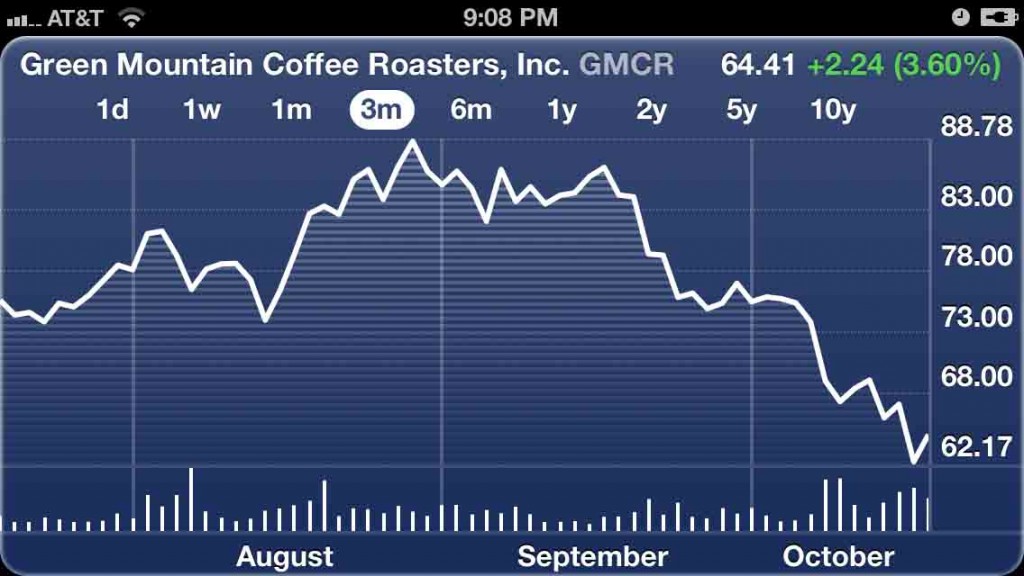Dating and Trading Rule on Falling Knives
(for the remainder of the Dating & Trading series, please see links at bottom of this post).
As much as we have a desire to play hero and exercise our ability to rescue people, don’t expect that jumping into a fire will be a reliable way to begin a stable relationship.
The falling knife relationship begins at an extreme, with one person providing almost all of the security and needs for the other when in a healthy relationship both parties ought to have a secure sense of themselves to be a responsible partner.
It’s too easy in the beginning for a “rescuer” to find fulfillment in the fact that someone “needs” them, but the short sighted fact is, you are only human and playing superhero denies the fact that you will also have needs that will ultimately need to be met by the other person.
With so much emotional capital expended, you may feel that your effort was a down payment on an investment in a long term relationship rather than a short term emergency response.
We are not to judge either party unless there was outright deception involved. As the saying goes, “It takes two to tango.” Both parties need to be honest with themselves and to each other in their ability to meet the desired commitment.
Guess what?! Buying stocks has the same danger.
When a stock is a “falling knife”, it has the characteristic of falling out of its previous trading range, going through what was a support level. On one hand, a falling stock offers an opportunity to buy it at a lower price, which could potentially can save you money if you hold it long enough for it to rise above the price you bought it. However, a falling knife typically means institutions are selling the stock for a number of reasons which should raise caution when there is such selling pressure.
See the chart example above. Around the middle of September, the stock began a downward trend, eventually breaking support at about 81 dollars or so. If you bought the stock after it broke support and didn’t keep a stop, you’d be suffering a serious case of falling knife catching and would have proceeded to lose about 25% of your hard earned cash…. so far.
The take away is, it’s best not to catch a falling knife until it proves it is no longer a falling knife!
Often a person buys a stock thinking emotionally that it either couldn’t go down further or that they can dollar cost average on the way down. The sad fact is all too often the price continues to go down (lowering the value of your purchase) and then that unanticipated moment comes when it becomes too painful to hang on… and you end up selling it because deciding emotionally can’t take the pain anymore…
And if you’ve dollar cost averaged during this downhill slide, thinking that you are still getting a “deal” and you do not sell it, you then have even more money committed into a long term losing position… money that could have been used to buy another “stable” stock that shows indications of becoming a winner, or even just having cash is much better than losing money. As Dan Fitzpatrick says, “Cash is also a position.”
The emotional distress and the loss of real capital will wear you down if you are in a habit of “catching falling knives.”
While it is possible to make a profitable trade on a stock that hasn’t proven it has bottomed, in general, this is a practice that ought to be avoided by a prudent long term investor.
The take away is this: Let the stock show you a level that it can bottom out before taking a position. A conservative approach would be to wait until it can close at a higher price than the previous day’s low.
When you take a position, place a stop slightly under the recent bottom and start with a modest position. While you cannot be assured the stock will rise, at least you will not lose much money if the stock decides to continue it precipitous trend.
Careful consideration needs to be made in calculating the purchase price and the potential loss should you be stopped out. Can you tolerate that loss? This is key to what is known as risk management.
Back to Dating Relationships
It is proper to be clear about your commitment preferences and not to lead on others if you do not share the same preference. Decisions made with an overload of emotion and a lack of rationality should be give rise to caution.
Recognize that attempting to catch a falling knife with the intent to create a commitment will likely cause you to spend unexpected levels of personal capital, but care and honesty should play a big role not to mishandle each other’s long term interests.
For the remaining
Dating & Trading Series, please check out the links below.
Long-term “hold” considerations Part 1
Long-term “hold” Considerations Part 2
I’ll see you.. on the next page
You can contact me at ChallenYee@challenyee.com
DId receive any value from this post? Please share and leave a comment.



